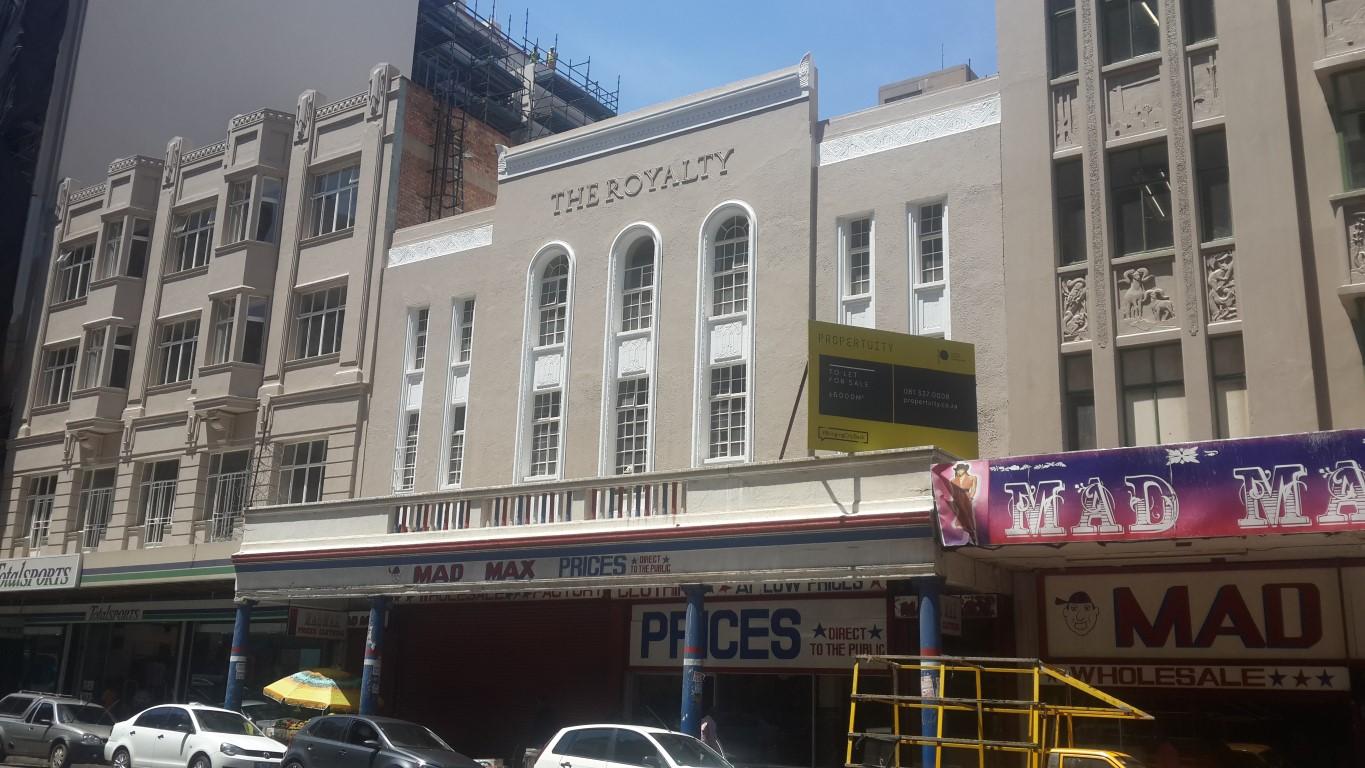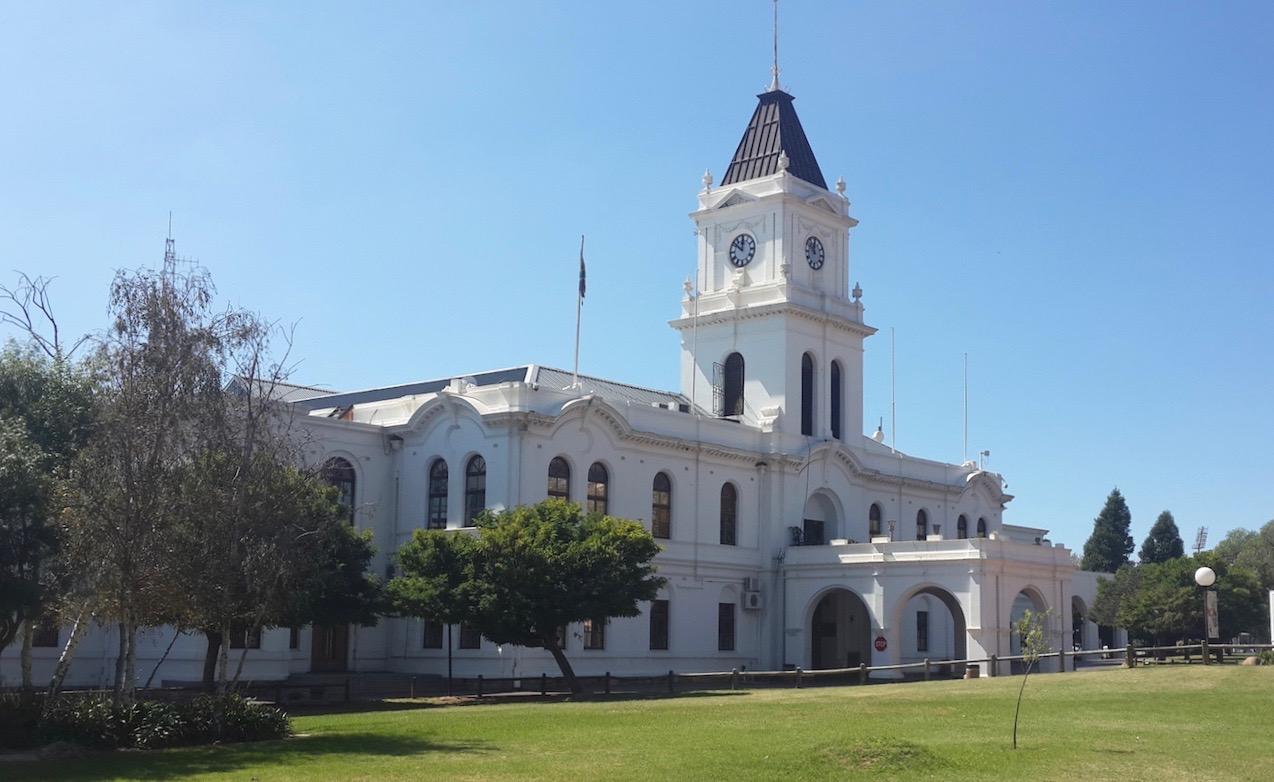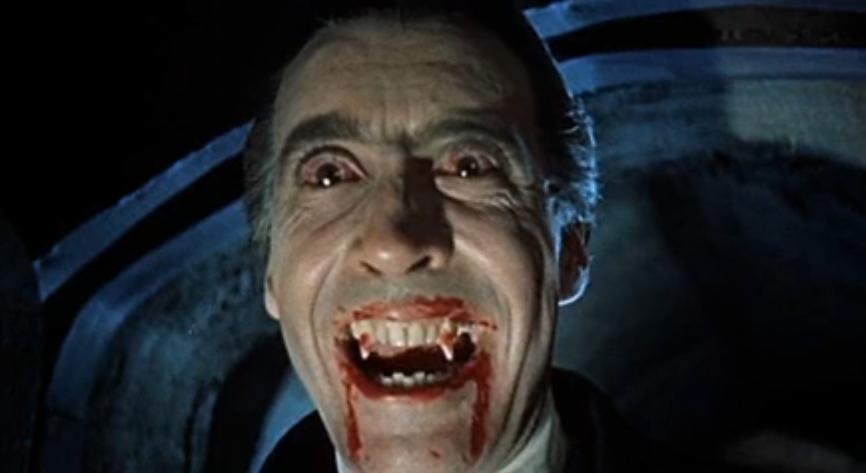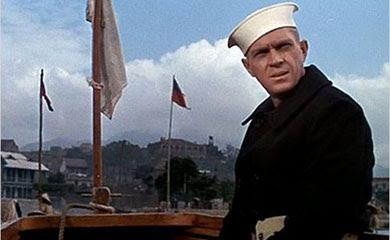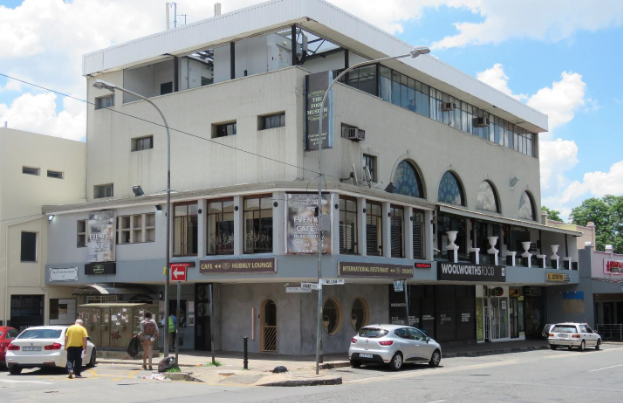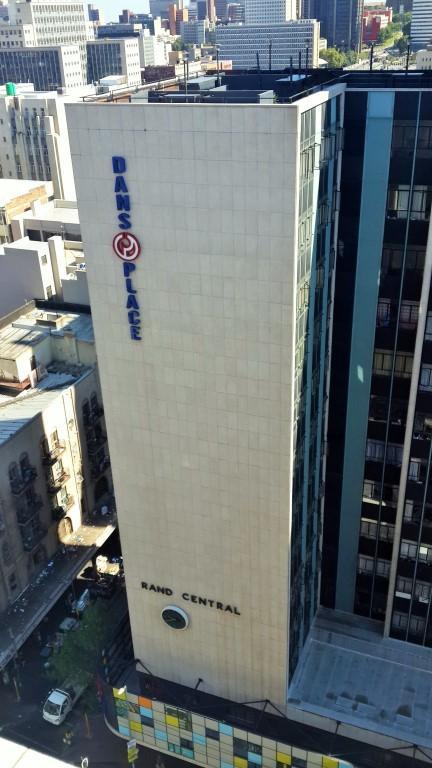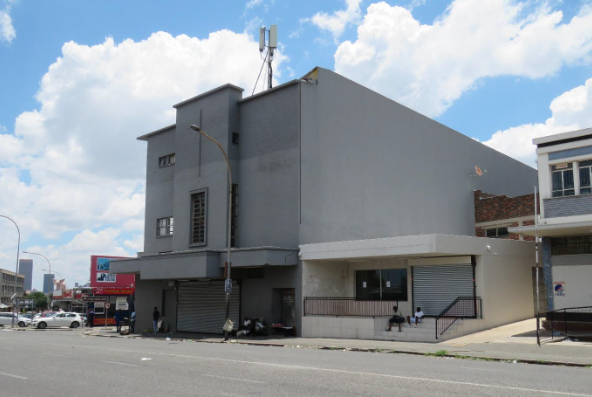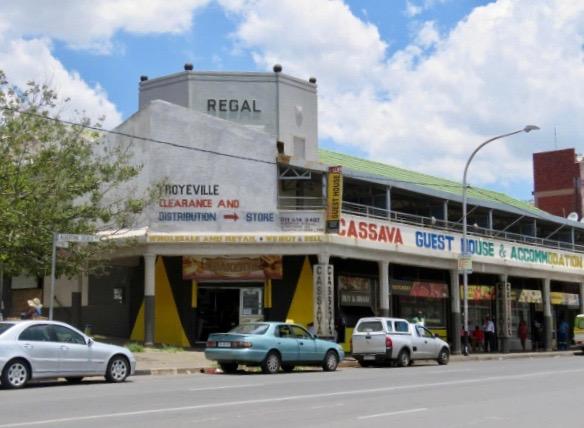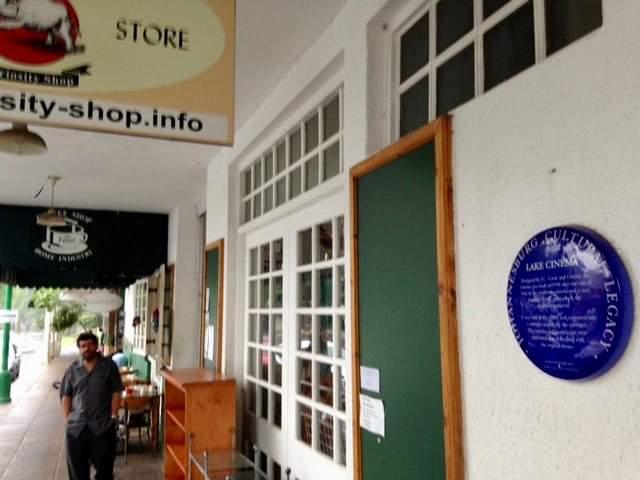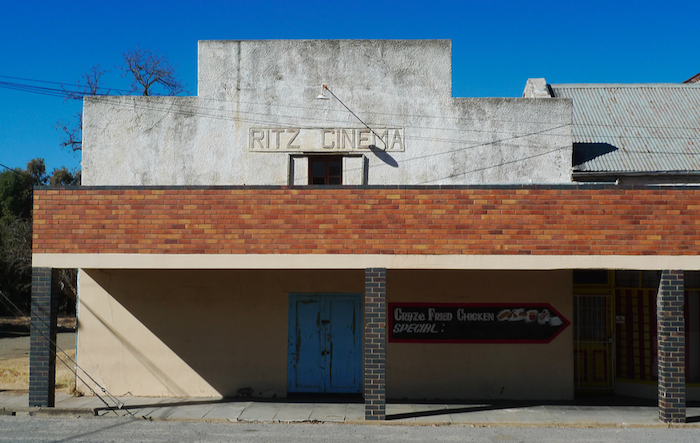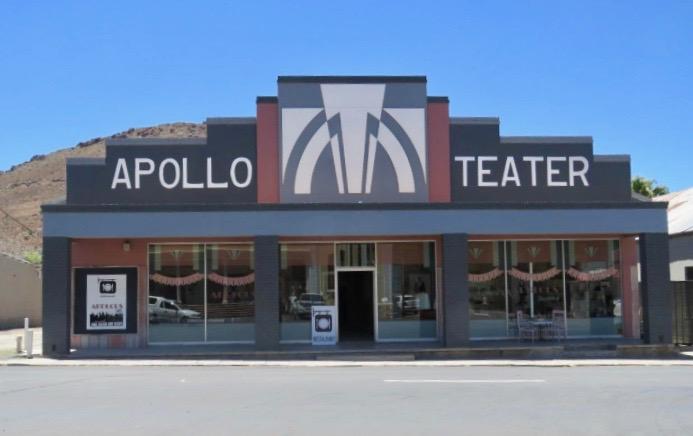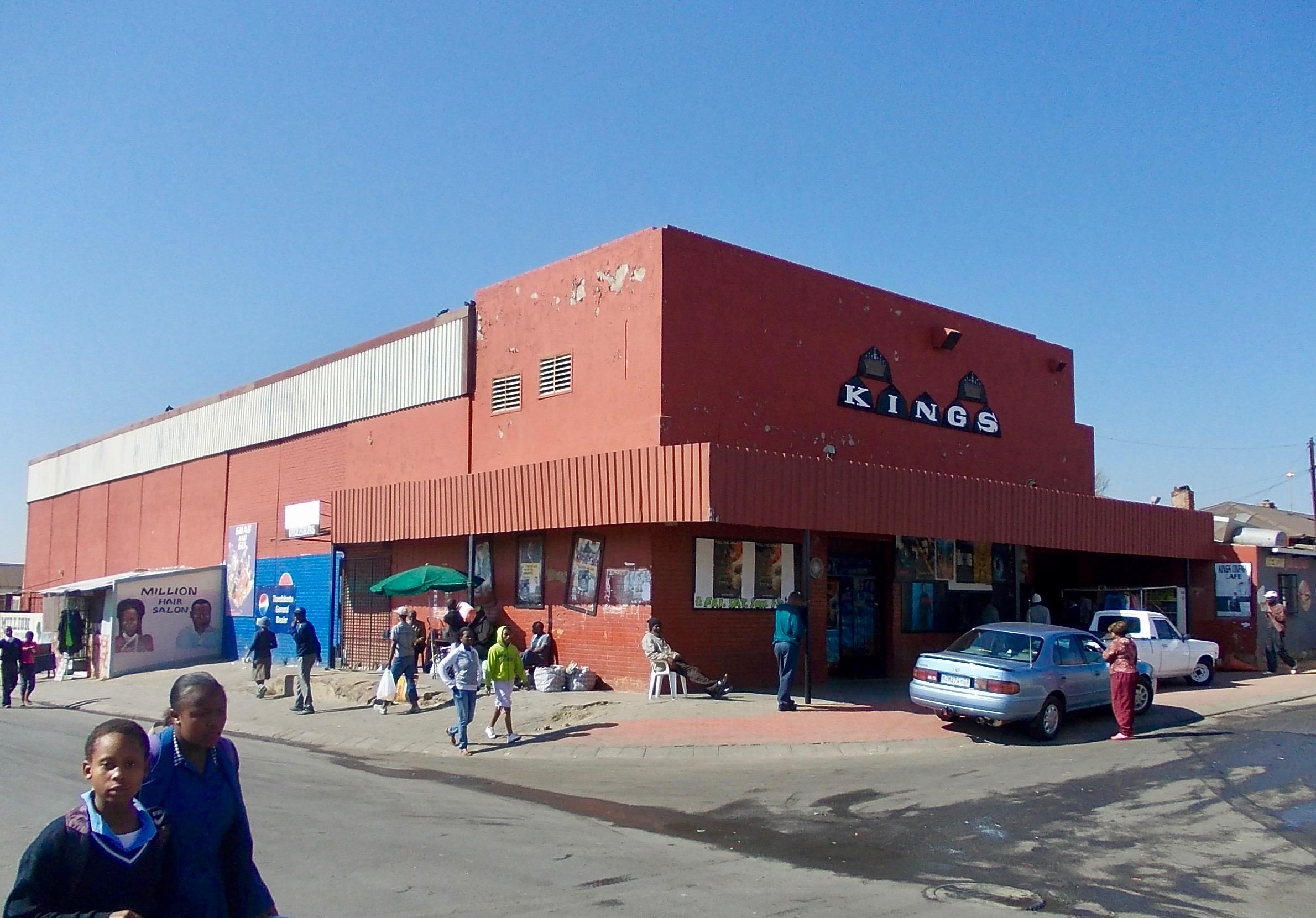
Disclaimer: Any views expressed by individuals and organisations are their own and do not in any way represent the views of The Heritage Portal. If you find any mistakes or historical inaccuracies, please contact the editor.
What do names such as ‘Astoria, Regal, Plaza, Victory, Pigalle, Empire, Roxy, Odeon, Vaudette, Regent, Apollo, Ritz, and Bijou’, mean to you?
Generation Z will probably think they are apps and Millennials that they are computer games. Generation X will think of them as names of men’s suits, restaurants or maybe small-town hotels. Only the Baby Boomers will recognise the evocative names of long closed and largely forgotten bioscopes.
There was a time when almost every South African town and most large suburbs had a bioscope or bio cafe and sometimes more than one. A bioscope was considered more genteel than a bio cafe, where you could watch two alternating films for the price of one and get a free cup of water diluted cold-drink as well.
The Royalty Building on Pritchard Street was once home to a bio cafe (The Heritage Portal)
I grew up in Krugersdorp from the mid-60’s to the mid-70’s and still remember the feeling of anticipation when my two cousins and I went to see a film or ‘movie’ as we called it, at the ‘Vaudette’ or ‘Italia’, the two main bioscopes in town. There was also the local bio cafe, the ‘Capitol’, which I think was spelt with an ‘o’ not an ‘a’, but as children we were only allowed to visit it for matinees. My uncle perhaps unfairly referred to it as the ‘fleapit’. The Capitol offered its patrons the opportunity to watch two alternating films for as long as they wished. My aunt remembers its custom of serving the cold-drink in a container with a saucer, the saucer serving as proof of payment. By the time we went there, saucers were no longer being provided. Perhaps just as well, as flying saucers in a bioscope, even on the West Rand, would have been frowned upon.
Krugersdorp was always well served with bioscopes. Opposite the Town Hall used to be the ‘Astoria’ which offered a double feature, but unfortunately had closed before my time. Krugersdorp West had its own bioscope called either the ‘Rio’ or the ‘Ritz’, but that was too distant for us youngsters to travel.
Krugersdorp Town Hall (The Heritage Portal)
Unfortunately, the 1970’s were harbingers of cinematic doom. First the ‘Capitol’ closed followed a few years later by the ‘Vaudette’, which had always been the grandest of the three, while the ‘Italia’ transformed itself into the ‘Roma’ and soldiered on for a few years longer, but the end was clearly drawing near. Their passing felt like those of beloved pets. Even though Kine Flora in the Flora Centre in Florida claimed to offer an integrated cinema experience combining restaurants with a variety of cinemas under one roof, this did not quite soften the blow. No longer could we walk to the movies or more importantly walk home from the movies at night, tormenting the youngest cousin about frequent sightings of Dracula, having just seen Christopher Lee acting as him, together with some pretty damsel who only Jonathan Harker and Dr. Van Helsing could save from his evil blood sucking intentions.
Christopher Lee as Dracula (Wikipedia)
I vividly recall other classics, such as ‘Blue Max’, starring Ursula Andress and George Peppard. ‘Sand Pebbles’ and ‘Bullitt’, both with Steve McQueen, and a few years later the ‘Dirty Harry’ series with Clint Eastwood, and of course Bruce Lee’s ‘Fist of Fury’ and ‘Enter the Dragon’, which caused us black and blue bruises all over, from trying, unsuccessfully I may add, to master the art of home-made nunchaku sticks.
Scene from the ‘Sand Pebbles’ supposedly in Shanghai but actually filmed in Taiwan and Hong Kong.
The book by Richard McKenna beautifully reflects life upon a small American river gunboat on the Yangtze River when the Nationalist and Communist Chinese factions are emerging.
There were many other memorable ones, but unfortunately now forgotten in the mists of time. No wonder ‘Cinema Paradiso’ became years later, one of my all-time favourite films.
My wife grew up in Orange Grove and Sydenham and she nostalgically remembers the ‘Astra’, the ‘Victory’ and the Royal Cinerama, all in Louis Botha Avenue. While dating we sometimes went to the ‘Piccadilly’ in Yeoville and when that closed, the 7 Arts in Norwood and for a while the ‘Constantia’ in Rosebank, until it too closed. When finances permitted, a movie was followed by a meal at the ‘Black Steer’ also in Louis Botha. Sadly nowadays, only the ‘Victory’ remains as an occasional theatre venue.
Where the 7 Arts used to be in Grant Avenue, Norwood. (SJ de Klerk)
Other old timers may recall the ‘Curzon’ in Kotze Street Hillbrow, the ‘Plaza’ at the corner of Rissik and Jeppe Streets, the ‘Pigalle’ opposite the OK Bazaars in Jorissen Street Braamfontein and the ‘Roxy’ a bio café near the Quirinale Hotel in Hillbrow.
In Jeppe Street used to be the ‘Bijou’, later demolished and replaced with the Rand Central building where Percy Tucker subsequently established his Computicket business.
Rand Central Building (The Heritage Portal)
As Tucker says in his book ’Just the Ticket’, ‘Until the early sixties, cinemagoing was a civilised affair, a real outing, particularly in the big houses like the Colosseum or the old 20th Century. The managers wore evening suit (even in the afternoon!), the ushers were neatly uniformed (and actually ushered you to your seats, torches in hand) and audiences, too, dressed for the occasion – men in suits and ties, women in hats and gloves!’
In Kensington where we subsequently settled, there was but demolished prior to our arrival, the ‘Regent’ just around the corner from Langerman Drive and Queen Street. Apparently, the name was later changed to ‘Fairway’ and the building subsequently burned down. Older residents may remember the adjacent ‘Regent’s Tea Room’ where one could pop in for refreshments during the interval.
The ‘Gem’ was at the top of Kensington in Roberts Avenue, opposite the Oribi Hotel, on the border with Fairview. Having some experience of Jeppe Boys (both my sons are old boys), I can well imagine many a school boy spending his afternoon there rather than on much needed homework.
The ‘Gem’ at the top of Roberts Avenue, opposite the Oribi Hotel. (SJ de Klerk)
Troyeville had the ‘Regal’ at the corner of Apollonia and Albertina Sisulu Streets. One can still read the legend ‘Regal’ on the gable of the building.
The name of the Regal bioscope can still be seen on the gable of the much-changed building on the corner of Apollonia and Albertina Sisulu Streets, Troyeville. (SJ de Klerk)
In Malvern, at the corner of Jules and Naiad Streets was the ‘Kinema’ and some distance to the east, next to the old Malvern Hotel at the corner of Jules and 19th Streets used to be the ‘Metropolis’.
Doornfontein had the ‘Apollo’, Parkview the ‘Lake’, Greenside the ‘Rex’ and in Melville there was a bioscope where later the ‘Mixer’ Coffee House used to be.
Blue plaque commemorating the Lake Cinema in Parkview (The Heritge Portal)
So why did all these old bioscopes dating back to the 1940’s and 50’s and who knows maybe even earlier, all close in the 1970’s? The main reason was the arrival of TV in 1976 which caused cinema attendance to drop. Then the overhead costs of running a single cinema with all the attendant expenses became too costly. This resulted in the merger of Ster and Kinekor and it focusing on integrating cinemas into large retail and leisure developments. Hence, virtually all the independent and single cinemas closed within a few years. Yes, I know it is hard to argue against progress, but some things you only miss when they are gone.
What was so amazing about these bioscopes is that there used to be one in every small town. When you break your journey somewhere in a small rural town, look around the town square and try to visualize which building used to be the bioscope. Old bioscope buildings have a slightly different look about them. Perhaps it is the aura of happy memories from long gone patrons. Then look closely at the gable of the building and you might just be able to read the faded letters still spelling out that magical name, ‘Plaza, Ritz, Odeon, Apollo’, and so on.
The old Ritz bioscope in Winburg. The street balcony was probably added later. (Christo Doherty on Flickr)
But don’t lose heart. If you require one last visit to a bioscope to restore your favourite childhood memories, there is still one such special place left.
In Victoria West, a beautifully preserved Art Deco Cinema was discovered at the back of a furniture store. Its history dates to 1923 when Greek immigrant, Andrew Aristides Bassil, came to Victoria West to manage the Good Hope Café. Some years after his arrival, Bassil built the original Apollo theatre behind the café. During the 1950’s Bassil decided to upgrade, and in March 1957 the new Apollo theatre opened. The cinema had been substantially enlarged and modernised, boasting two galleries, a raked auditorium, upholstered seats, and new equipment capable of projecting wide–screen cinemascope films. The local press described the Apollo as ‘the most beautiful and efficient bioscope in the Great Karoo’. It is now the only remaining original Art Deco theatre in South Africa.
Beautifully restored Apollo bioscope in Victoria West. (SJ de Klerk)
So next time you rush through the Karoo to your Cape destination, do yourself a favour. Stop at Victoria West, drink a delicious milk shake at the Apollo and look around this bioscope. If this does not bring back your favourite childhood memory, nothing else will.
The author wishes to thank Betty Myers, Geoff Klass and Brian van Niekerk for recalling the names and sites of old Krugersdorp, Johannesburg and Malvern bioscopes, respectively.
Main image: Kings Cinema Alexandra (The Heritage Portal)
About the author: SJ De Klerk held many senior positions in HR during a distinguished career in the private sector. Since retiring he has dedicated time and resources to researching, exploring and writing about South Africa's historical cemeteries.
Source
- Tucker P. 1997. Just the Ticket. My 50 years in show business. Jonathan Ball Publishers. Johannesburg.
Comments will load below. If for any reason none appear click here for some troubleshooting tips. If you would like to post a comment and need instructions click here.

